Exposing Entitled Behaviors of Karens: A Cultural Critique
Category: Social Issues
Understanding the Entitled Behaviors of Karens: A Social Justice Perspective
If you’ve landed here, you’re likely someone deeply concerned with fairness, equality, and the growing cultural phenomenon of entitlement as embodied by the archetype known as "Karen." Whether you’ve witnessed firsthand the disruptive and often unjust actions of Karens in public or online or you’re looking to understand why these behaviors spark such outrage and social discourse, this post will cut through the noise. We won’t simply rehash viral incidents or memes; instead, we’ll unpack the roots of entitlement, the impact these behaviors have on marginalized groups, and why this cultural critique matters far beyond isolated moments of conflict.
You’re not here for basic explanations—you understand social justice nuances and the complexities behind power dynamics and privilege. Your pain point is recognizing how these entitled actions obstruct progress, reinforce inequality, and frustrate anyone striving for a fair and respectful society. This article is crafted to give you a coherent, structured examination of entitled behaviors by Karens, while distancing from sensationalism and focusing on how these patterns reflect broader systemic issues. If you want an insightful, clear guide to help you identify, critique, and address these behaviors within cultural conversations or activist spaces, keep reading. This is your resource for understanding entitlement through a socially conscious lens.
- Understanding the Entitled Behaviors of Karens: A Social Justice Perspective
- Defining the ‘Karen’ Phenomenon: Origins and Evolution of the Term
- Common Entitled Behaviors Displayed by Karens in Public Spaces
- How Entitlement Manifests in Customer Interactions and Service Disruptions
- The Role of Privilege and Power in Fueling Karen-Like Behavior
- Social and Psychological Drivers Behind the Need to Assert Control
- Impact of Karen Behaviors on Marginalized Communities and Social Justice
- Digital Entitlement: Karens in Social Media and Online Harassment
- Legal and Ethical Consequences of Entitled Public Outbursts
- Strategies to Recognize, Confront, and Mitigate Entitled Behaviors
- Cultural Commentary: What Karens Reveal About Society’s Larger Issues
Defining the ‘Karen’ Phenomenon: Origins and Evolution of the Term
To fully grasp the entitled behaviors embodied by “Karens,” it’s essential to understand the origins and evolution of the term itself. The label “Karen” emerged from internet culture and social media, initially used in memes and viral videos to caricature a specific type of person—usually a middle-aged white woman—who exhibits entitlement, privilege, and a penchant for demanding to “speak to the manager.” Over time, this archetype has expanded beyond mere stereotype to symbolize broader issues related to racial and socioeconomic privilege, systemic injustice, and the policing of marginalized communities.
The evolution of the Karen phenomenon reflects society’s increasing awareness and frustration with the ways entitlement perpetuates inequality. Early memes focused on petty retail complaints, but recent usage highlights incidents where these entitled demands escalate into public confrontations, often with racial undertones—such as calling law enforcement on Black individuals for everyday activities. This transformation underscores how “Karen” is no longer just a joke but a critique of entrenched power dynamics, social privilege, and the destructive impacts of unchecked entitlement.
Key elements that define the Karen phenomenon include:
- Entitlement to Exceptional Treatment: Demanding preferential service or bending rules to serve personal convenience.
- Disregard for Social Boundaries: Ignoring the rights and dignity of others, especially marginalized groups.
- Utilization of Institutional Power: Weaponizing systems like law enforcement or management to intimidate or control.
- Resistance to Accountability: Deflecting criticism and maintaining a sense of innocence or victimhood despite evidence.
Understanding these dimensions helps position the Karen phenomenon not as isolated nuisance behavior but as an expression of systemic privilege and social injustice—a critical entry point for social justice advocates seeking to dismantle these dynamics in everyday life.
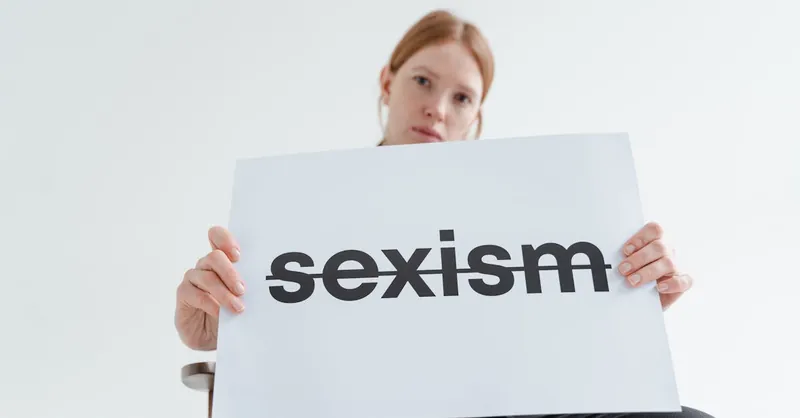
Image courtesy of Tima Miroshnichenko
Common Entitled Behaviors Displayed by Karens in Public Spaces
In public settings, the entitled behaviors of Karens are often glaringly evident and serve as real-world examples of how privilege and entitlement manifest disruptively. These behaviors not only inconvenience others but also perpetuate social inequities by leveraging privilege to impose unfair demands, enforce exclusion, or weaponize institutional power. Recognizing these common patterns is key to understanding how entitlement influences everyday interactions and hinders social justice progress.
Some of the most frequent entitled actions exhibited by Karens in public include:
-
Demanding Unreasonable Exceptions: Karens often insist on contravening rules or policies—whether in retail, service industries, or public venues—expecting special accommodations or service beyond what is normally offered. This disregard for communal norms privileges their personal convenience over fairness.
-
Aggressive Policing of Behavior: A hallmark behavior is taking it upon themselves to monitor and correct others’ conduct, especially when directed at marginalized people. This can include calling security or law enforcement on individuals engaging in perfectly lawful and innocuous activities, rooted in bias rather than legitimate concern.
-
Escalating Minor Disputes: Rather than negotiating calmly, Karens tend to escalate routine disagreements into confrontations by demanding to "speak to the manager," threatening formal complaints, or resorting to loud, public performances of entitlement that intimidate bystanders and service workers alike.
-
Dismissal of Accountability: When confronted with the harm caused by their behavior, Karens frequently deflect responsibility by portraying themselves as victims of unfair treatment or misunderstanding. This resistance to self-reflection reinforces systemic patterns of unchallenged privilege.
-
Using Social Status as a Shield: Whether through race, socioeconomic standing, or perceived authority, Karens exploit their social position to evade consequences, manipulate situations to their favor, or silence dissenting voices. This dynamic deepens inequities by reinforcing barriers for marginalized groups to access justice or equal treatment.
By consistently exhibiting these behaviors in public spaces, Karens not only disrupt social harmony but also exemplify how personal entitlement evolves into broader societal injustice. For activists and allies, identifying these patterns is critical for calling attention to the everyday impacts of privilege and advocating for more equitable interactions and institutional responses.

Image courtesy of Ketut Subiyanto
How Entitlement Manifests in Customer Interactions and Service Disruptions
Entitlement frequently reveals itself most starkly in customer interactions, where Karens leverage their perceived social privilege to disrupt service environments, often at the expense of frontline workers and other customers. This behavior not only causes immediate disruptions but also reflects deeper issues of power imbalance and systemic injustice inherent in consumer culture. Understanding these patterns helps social justice advocates recognize how entitlement enacts structural inequalities in everyday settings.
Common Manifestations of Entitlement in Service Settings
-
Demanding Immediate and Special Treatment: Karens often insist on bypassing normal procedures—such as ignoring wait times, overriding posted policies, or requesting free products or refunds without justification. This expectation for exceptional treatment prioritizes their convenience over fairness to others and puts undue pressure on service workers.
-
Public Confrontations Over Minor Issues: Minor service hiccups escalate as Karens publicly berate employees or other customers, creating a hostile environment. These outbursts frequently involve loud complaints, threats to escalate to management, or calls to corporate headquarters designed to intimidate and coerce compliance.
-
Refusal to Comply with Policies or Health Guidelines: Whether rejecting mask mandates, social distancing, or return policies, Karens frequently position themselves above rules designed to protect community safety and equitable service. This behavior not only disrupts operations but puts vulnerable populations at risk.
-
Weaponizing Institutional Power Against Employees: Karens are known for invoking authority figures—managers, security, or even law enforcement—without cause to control situations or punish workers who do not meet their unreasonable demands. This misuse of institutional power exacerbates workplace stress and perpetuates unequal dynamics.
-
Using Social Privilege to Dismiss Service Workers’ Boundaries: By leveraging race, gender, or class privilege, Karens often override respectful interaction norms, ignoring employees’ requests or dismissing their professionalism. This reinforces harmful power imbalances and diminishes workers’ agency and dignity.
In service environments, these behaviors create a ripple effect—disrupting operations, undermining employee well-being, and reinforcing societal inequities. For activists, recognizing how entitlement functions in customer interactions is essential for advocating better protections for service workers and promoting more equitable, respectful public spaces. Addressing these dynamics involves not only calling out individual behaviors but also pushing for systemic changes in how institutions support frontline staff against entitled abuse.

Image courtesy of Amina Filkins
The Role of Privilege and Power in Fueling Karen-Like Behavior
At the core of Karen-like entitlement lies an often invisible but deeply entrenched web of privilege and systemic power that enables and amplifies these behaviors. This phenomenon is not merely about individual attitude or poor etiquette; it is a reflection of how social hierarchies grant certain individuals unearned advantages, allowing them to impose their will with little fear of consequences. By understanding the interplay of racial, class, and institutional privilege, social justice advocates can more effectively confront the underlying structures that empower Karens and perpetuate injustice.
How Privilege Shapes Entitled Actions
-
Racial Privilege as a Foundation: The Karen archetype overwhelmingly represents white individuals who benefit from racial privilege—an unearned societal advantage that normalizes their dominance in public and institutional spaces. This racial advantage allows Karens to weaponize policies and authorities like law enforcement disproportionately against marginalized communities, often without accountability.
-
Socioeconomic Power Facilitates Control: Many Karens possess economic stability or wealth that reinforces their sense of deserving special treatment. This financial privilege translates into an ability to demand exceptions—whether through threatening to withhold business, bullying frontline workers, or using legal and institutional knowledge to intimidate others.
-
Institutional Trust and Access: Karens also rely on institutional trust, assuming their complaints will be taken seriously and acted upon swiftly due to their social status. This dynamic results in a systemic imbalance where institutions default to protecting privileged complainants at the expense of marginalized individuals, further entrenching social inequities.
-
Cultural Norms That Shield Entitlement: Societal norms frequently excuse or minimize entitled behavior exhibited by Karens, framing it as “assertiveness” or “standing up for oneself.” This cultural framing ignores the harm done to others and perpetuates a cycle where privilege is misunderstood as inherent right rather than examined critically.
By recognizing how privilege and power fuel entitlement, it becomes clear that addressing Karen-like behavior requires more than individual confrontation; it demands systemic change that dismantles the structural advantages empowering such actions. For social justice efforts, this means pushing for institutional accountability, equitable policy enforcement, and cultural shifts that refuse to excuse entitlement cloaked in privilege.
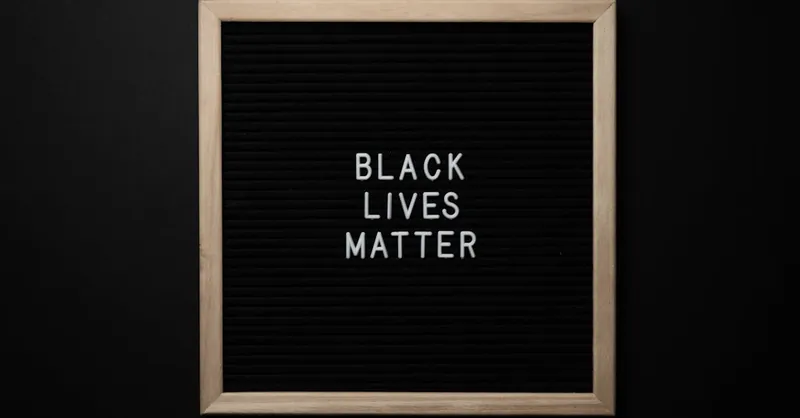
Image courtesy of Brett Sayles
Social and Psychological Drivers Behind the Need to Assert Control
The entitled behaviors exhibited by Karens are deeply rooted not only in social privilege but also in complex psychological drivers and needs for control. At their core, many Karen-like actions stem from an urgent desire to assert dominance in uncertain or anxiety-inducing situations by leveraging social power. This assertion of control functions as a coping mechanism—often unconscious—that reinforces a fragile sense of superiority and personal security in a shifting social landscape that increasingly challenges traditional hierarchies.
Several key psychological and social factors fuel this need to assert control:
-
Threat Perception and Social Anxiety: When confronted with environments perceived as unfamiliar or destabilizing—be it due to demographic shifts, increased diversity, or changing social norms—individuals prone to entitlement may react defensively. The demand to “speak to the manager” or excessive policing of others’ behavior reflects an underlying attempt to regain a sense of order and predictability.
-
Identity Protection and Status Maintenance: Karens often exhibit behaviors that guard their social identity tied to race, class, and cultural norms. The aggressive assertion of privilege serves to maintain their relative social status and resist perceived threats to their dominant position within societal structures.
-
Narcissistic Validation and Victim Mentality: Many entitled actions are reinforced by the need for external validation and recognition of importance. When challenged, Karens may avoid accountability by adopting a victim stance, deflecting blame, and projecting innocence, thereby defusing cognitive dissonance and preserving their self-image.
-
Learned Entitlement Through Socialization: Growing up in environments where privilege is normalized and questions of fairness are seldom confronted cultivates a habitual expectation of special treatment. This learned entitlement becomes a default response to everyday interactions, especially in ambiguous or competitive settings.
Understanding these psychological dynamics is crucial for contextualizing Karen behaviors beyond surface-level frustration. It highlights that entitlement is not merely individual rudeness but a symptom of deeper social anxieties and power insecurities that intersect with systemic privilege. For social justice advocates, this awareness offers pathways to develop more empathetic yet firm strategies that expose entitlement without enabling its destructive cycles—ultimately fostering more equitable social interactions and institutional accountability.

Image courtesy of Yan Krukau
Impact of Karen Behaviors on Marginalized Communities and Social Justice
The entitled behaviors of Karens have disproportionate and deeply harmful effects on marginalized communities, exacerbating existing social injustices and undermining efforts toward equity and inclusion. By wielding their unearned privileges—racial, socioeconomic, or institutional—Karens often inflict both immediate and systemic damage on vulnerable groups. These actions not only obstruct individual dignity and safety but also weaken broader social justice movements striving to dismantle oppressive structures.
Key Ways Karen Entitlement Harms Marginalized Communities
-
Criminalization and Surveillance of Marginalized Bodies: Karens frequently weaponize law enforcement and security mechanisms by calling authorities on Black, Indigenous, people of color (BIPOC), LGBTQ+ individuals, or people with disabilities for everyday behaviors. This escalates the racial profiling and disproportionate policing that already plague marginalized groups, heightening fear and reinforcing societal exclusion.
-
Disruption of Safe and Inclusive Spaces: Entitled demands and aggressive interventions by Karens often intrude into community spaces meant to be safe havens for marginalized people. By asserting dominance in these environments, they invalidate the experiences and rights of those vulnerable populations, making it harder to cultivate solidarity or healing.
-
Perpetuation of Structural Inequality: The ability of Karens to dictate institutional responses through privileged complaints ensures that systems prioritize white, middle-class perspectives, sidelining marginalized voices. This dynamic preserves inequitable policies, limits access to justice, and perpetuates the invisibility of systemic discrimination in institutional practices.
-
Psychological and Emotional Harm: Repeated exposure to entitled behaviors contributes to trauma, anxiety, and mistrust among marginalized individuals. Facing uninhibited entitlement that dismisses their humanity intensifies social alienation and hinders collective empowerment necessary for social change.
By recognizing these impacts, social justice advocates can better strategize responses that not only call out individual instances of entitlement but also challenge the structural frameworks enabling Karen behaviors to thrive unchecked. This dual focus is essential for transforming public spaces, institutions, and cultural norms into environments that uphold fairness, respect, and genuine equity for all.
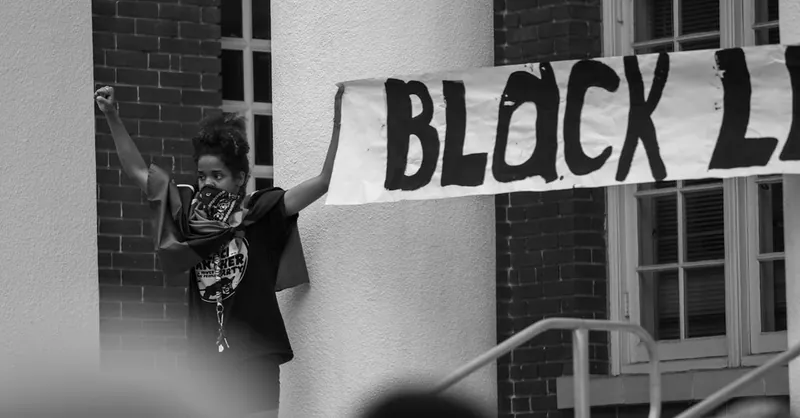
Image courtesy of Max DeRoin
Digital Entitlement: Karens in Social Media and Online Harassment
The rise of digital platforms has provided Karens new arenas to express their entitlement and exercise social control, often intensifying the harmful impacts witnessed in physical spaces. Online, Karens leverage the often-anonymous and viral nature of social media to amplify their demands, exert power over individuals and communities, and engage in targeted harassment, all under the guise of defending perceived rights or standards. Understanding this digital entitlement is essential for addressing the ways Karens weaponize technology to perpetuate injustice and inequality in the virtual sphere.
Characteristics of Karen Behavior on Social Media
-
Demanding Compliance Across Platforms: Karens frequently flood comment sections, use direct messages, and tag institutional accounts to demand immediate remediation or apologies, often for minor grievances or disputes. This digital persistence creates a hostile environment that overwhelms individuals and organizations alike.
-
Amplifying Microaggressions into Public Outrage: Small slights or misunderstandings are magnified through viral posts or “call-out” culture instigated by Karens, who mobilize followers to shame targets publicly. This weaponization of social media fosters a punitive culture that sidelines context and empathy.
-
Racialized and Targeted Online Harassment: Reflecting offline patterns, digital Karens disproportionately direct vitriol at BIPOC, LGBTQ+, disabled people, and activists advocating for social justice. This harassment ranges from demeaning comments to coordinated trolling campaigns, reinforcing systemic marginalization and intimidation.
-
Exploiting Platform Policies to Silence Dissent: Karens adeptly use reporting tools and community guidelines to censor voices challenging their entitlement, often framing themselves as victims and weaponizing institutional responses to suppress critique or calls for accountability.
-
Performative Allyship and Controlling the Narrative: Some Karens co-opt social justice language online to project an appearance of moral authority while policing how issues are discussed, effectively controlling conversations and redirecting focus toward their own grievances rather than addressing systemic problems.
The Broader Impact of Online Karen Entitlement
This digital manifestation of entitlement disrupts constructive dialogue, undermines trust in social media as a space for advocacy, and contributes to the burnout of marginalized voices and social justice activists. For those committed to equity, recognizing these patterns is crucial for developing digital literacy strategies that:
- Identify entitlement-driven harassment and doxic behaviors masked as legitimate complaints.
- Promote resilience and solidarity among targeted communities.
- Advocate for platform-level reforms that balance enforcement of community standards with protections against abuse and suppression.
By illuminating how Karens extend their entitlement into social media and online harassment, social justice advocates can better defend equitable digital spaces that resist the replication of offline inequities in virtual realms.

Image courtesy of Mizuno K
Legal and Ethical Consequences of Entitled Public Outbursts
Karens’ entitled public outbursts often cross the threshold from mere social nuisance to actions with significant legal and ethical implications. These behaviors can trigger serious consequences not only for the individuals involved but also for communities and institutions caught in the crossfire of unwarranted demands and escalations. Understanding these ramifications is essential for social justice advocates seeking to hold entitlement accountable within frameworks of justice and fairness.
Legal Consequences
-
False Reporting and Abuse of Emergency Services: One of the most severe legal risks arises when Karens weaponize law enforcement by making false or racially biased emergency calls. Such actions can lead to charges of false reporting, harassment, or even hate crimes, depending on jurisdiction. These misuses of public safety resources divert attention from genuine emergencies and disproportionately endanger marginalized groups.
-
Harassment and Defamation Claims: Persistent public harassment, aggressive confrontations, or public dissemination of misinformation can expose Karens to civil lawsuits for harassment, defamation, or intentional infliction of emotional distress. Courts increasingly recognize that entitlement does not excuse harm caused by abusive verbal or online attacks.
-
Workplace and Consumer Protection Violations: When entitled behavior interferes with workers’ rights or violates consumer protection laws—such as refusal to comply with health regulations—Karens may face fines, business bans, or legal action. Employers and institutions are also pressed to enforce policies that shield employees from abuse and uphold ethical standards.
Ethical Implications
-
Erosion of Social Trust: Entitled outbursts undermine the foundational trust necessary for civil society by fostering fear, resentment, and division. They violate ethical principles of respect, empathy, and fairness, especially when directed at vulnerable individuals or groups.
-
Perpetuation of Systemic Injustice: By exploiting institutional mechanisms unfairly, Karens contribute to maintaining unequal power structures that marginalize vulnerable communities and compromise justice. Ethically, this behavior demands active challenge and systemic reform.
-
Responsibility and Accountability: Ethical frameworks emphasize the need for individuals to accept responsibility for their actions. Karen behavior often rejects this principle, instead fostering a culture of victimhood and denial that stalls meaningful accountability and repair.
Incorporating an understanding of these legal and ethical dimensions not only sharpens the critique of Karen entitlement but also equips advocates with robust language to demand consequences and policy changes. Confronting the legal risks and moral failures of entitled public outbursts is a necessary step toward dismantling the culture of unchecked privilege that sustains the Karen phenomenon.
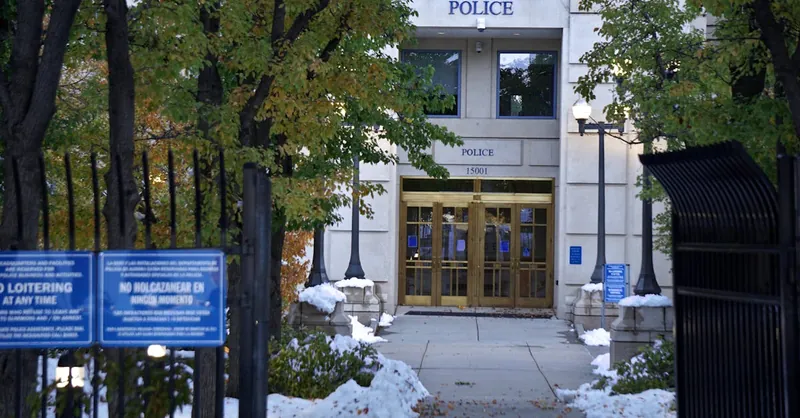
Image courtesy of Joshua Brown
Strategies to Recognize, Confront, and Mitigate Entitled Behaviors
Effectively addressing the entitled behaviors characteristic of Karens requires a multifaceted approach that combines recognition, direct confrontation, and systemic mitigation. Social justice advocates and allies must develop sharp awareness of these behaviors not only to call them out but also to disrupt the broader social patterns that enable entitlement. Proactive strategies empower communities and institutions to resist unfair demands, support marginalized individuals targeted by entitlement, and promote cultural accountability.
Recognizing Entitled Behaviors Early
Identifying entitlement in real time hinges on understanding its common manifestations across contexts. Key signs include:
- Unwarranted demands for exceptions or special treatment that disregard policies or the rights of others.
- Aggressive monitoring or policing of others’ behavior, especially when directed at marginalized people without legitimate cause.
- Escalation of minor conflicts into public confrontations designed to intimidate or coerce.
- Deflection of responsibility and victim framing when called out.
- Leveraging institutional trust or social status to bypass accountability.
Training yourself and others to spot these patterns prevents escalation and strengthens community resilience against entitlement culture.
Confronting Entitlement with Clarity and Courage
Confrontation must be both firm and socially conscious to challenge entitlement constructively:
- Maintain calm and factual communication: Avoid emotional escalation by focusing on clear descriptions of the behavior’s impact rather than attacking the individual’s character.
- Highlight systemic implications: Frame the confrontation around how entitlement perpetuates inequality and harms marginalized communities, making it clear that the issue extends beyond personal conflict.
- Set boundaries assertively: Clearly state what behaviors are unacceptable, and what consequences or institutional policies apply.
- Support targets of entitlement: Publicly back those on the receiving end of Karen behaviors to counter social isolation and amplify marginalized voices.
- Document incidents when appropriate: Maintained records aid institutions in responding effectively to repeat offenders and systemic issues.
Mitigating Entitlement Through Institutional and Cultural Change
Long-term mitigation demands systemic efforts that reduce the social and structural enablers of entitlement:
- Implement comprehensive training for frontline workers and management that includes identifying entitlement behaviors, bias awareness, and de-escalation techniques.
- Develop clear policies and enforcement mechanisms that prioritize equity and hold entitled behaviors accountable without reinforcing systemic biases.
- Elevate marginalized voices in policy development and conflict resolution processes to ensure fair representation and responsive institutional cultures.
- Promote public education campaigns that unpack entitlement, privilege, and their social consequences, fostering community-wide cultural shifts.
- Encourage solidarity and allyship by equipping observers with tools and scripts to safely intervene or support during entitlement incidents.
By integrating these strategies, individuals and organizations can weaken the pervasive influence of Karen-like entitlement and advance more just, respectful social environments. Recognizing entitlement is just the first step; systemic confrontation and mitigation are vital for meaningful change.

Image courtesy of RDNE Stock project
Cultural Commentary: What Karens Reveal About Society’s Larger Issues
The behaviors commonly attributed to Karens serve as a potent mirror reflecting broader societal dysfunctions, illuminating how entitlement, privilege, and systemic injustice operate at multiple levels. Far from being isolated incidents of rude or disruptive conduct, the Karen phenomenon exposes deep-rooted cultural anxieties and fractures tied to power imbalances, racial hierarchies, and social inequality. By examining what Karens reveal about society, we gain critical insights into the persistence of injustice and the obstacles faced by social justice movements.
Entitlement as a Symptom of Structural Inequality
At its core, Karen-like entitlement underscores how unequal access to power and resources perpetuates social stratification. The expectation of exceptional treatment without accountability embodies a cultural entitlement nurtured by historical and institutional privilege. This dynamic reveals:
- The normalization of racial and class dominance: Karens often unconsciously enact behaviors that uphold the societal status quo, wherein whiteness and economic advantage grant informal authority and immunity.
- The fragility of traditional power structures: The recurrent defensiveness and insistence on control reflect discomfort with shifting demographics, rising calls for equity, and challenges to longstanding norms.
- The invisibility of systemic bias: The repeated dismissal of marginalized voices in favor of privileged complaints exemplifies how institutional frameworks prioritize certain perspectives, thereby perpetuating inequity under the guise of neutrality.
The Cultural Reckoning with Entitlement and Accountability
The public backlash against Karens signals a growing societal awareness and unwillingness to tolerate unchecked entitlement. This cultural reckoning involves:
- Increased scrutiny of privilege: Social discourse now more openly interrogates how entitlement relates to systemic racism and injustice, challenging myths of individual meritocracy.
- Demand for institutional reforms: Organizations are pressured to confront how they may unwittingly facilitate entitlement through biased policies or inadequate protections for vulnerable groups.
- The rise of collective responsibility: There is a growing recognition that dismantling entitlement requires not only confronting individual behaviors but reshaping cultural narratives around power, respect, and fairness.
Understanding Karens in this broader cultural context amplifies the urgency for transformative social justice strategies that address both behavior and the systemic inequities that foster it. Their actions, while disruptive on the surface, reveal the fault lines of society’s ongoing struggle with power, privilege, and inclusion.
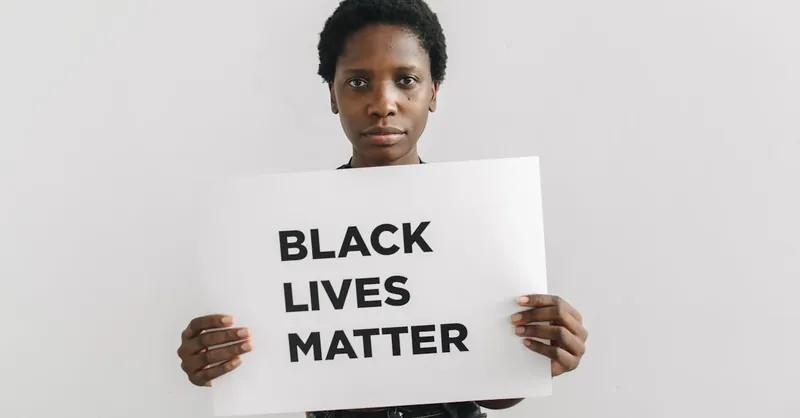
Image courtesy of Polina Tankilevitch
